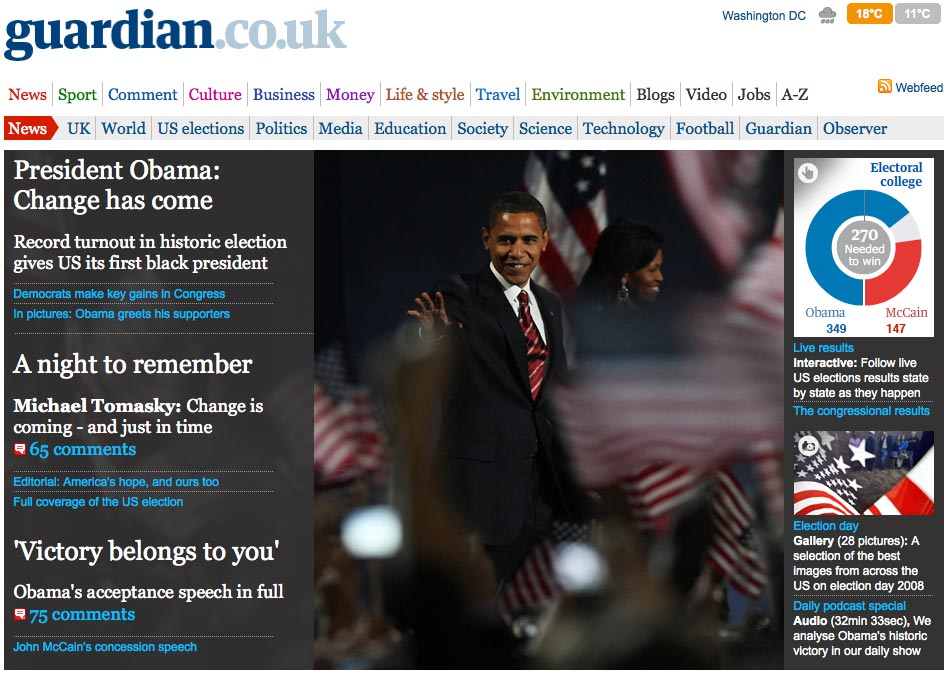Sidewiki (noun): a browser sidebar that enables you to contribute and read helpful information alongside any web page (source: Google.com)
or…
Sidewiki (noun): an attempt by our online colonial masters to own all of the comments on our websites (source: Andrew Keen)
On this occasion Jeff Jarvis would not do what Google is doing: the CUNY journalism professor and WWGD? author is worried. He can see some potential dangers for the development of Sidewiki, launched by Google yesterday. His commenters share their thoughts too, in a split conversation between the BuzzMachine comments thread and the Sidewiki (you’ll have to take the plunge and install it if you want to see how that looks). Jarvis says:
“This goes contrary to Google’s other services – search, advertising, embeddable content and functionality – that help advantage the edge. This is Google trying to be the centre. Quite ungoogley, I’d say.”
Sidewiki has the potential to be great for freedom of speech but what about the nastier side? Publishers no longer have control of the look of part of their site. Google has tested the application at news organisations it says – testimonials here – but it’s still developing its technology, and asking for feedback.
Some initial thoughts, then. The main concerns for journalists and news organisations might include:
1) Will it lose money for news sites?
Andrew Keen, writing for the Telegraph, comments:
“Sidewiki is a brazen attempt to own the Internet. What Sidewiki would do is replace/supplement the Telegraph comments section on this page with a Google comments page. So all comments on the internet would, in theory, be owned by Google (which, presumably, they could sell advertisements around – thereby eating into my salary).”
2) What happens about libel?
Google publishes its programme policy here, at this link.
‘Keep it legal,’ it says (and it will report us to the ‘appropriate authorities’ if we don’t).
“If you believe that someone is violating these policies, use the ‘Report Abuse’ button within Sidewiki. We’ll review your report and take action if appropriate. Just because you disagree with certain material or find it to be inappropriate doesn’t mean we’ll remove it. We understand that our users have many different points of view, and we take this into consideration when reviewing reports of abuse. Although not all reports will result in removal, we do rely on our users to tell us about materials that may be violating our policies.”
Have fun with that Google!
Here are a few questions about the legal aspect from Jo Wadsworth, online editor at the Brighton Argus, for whom comment moderation is part of her job:
“How long does it takes to get abusive comments removed? Where’s moderation criteria? Can site switch it off? Can trolls be banned?”
Meanwhile, SEO consultant and blogger Malcolm Coles is having a play… This morning, he says, he was finding it hard to resist the temptation to be the first to sidewiki the home page of UK newspapers. But someone else got there first.
Please add your own thoughts and questions. In the Google Sidewiki – to your left, via Twitter (@journalismnews) or in the comments…
